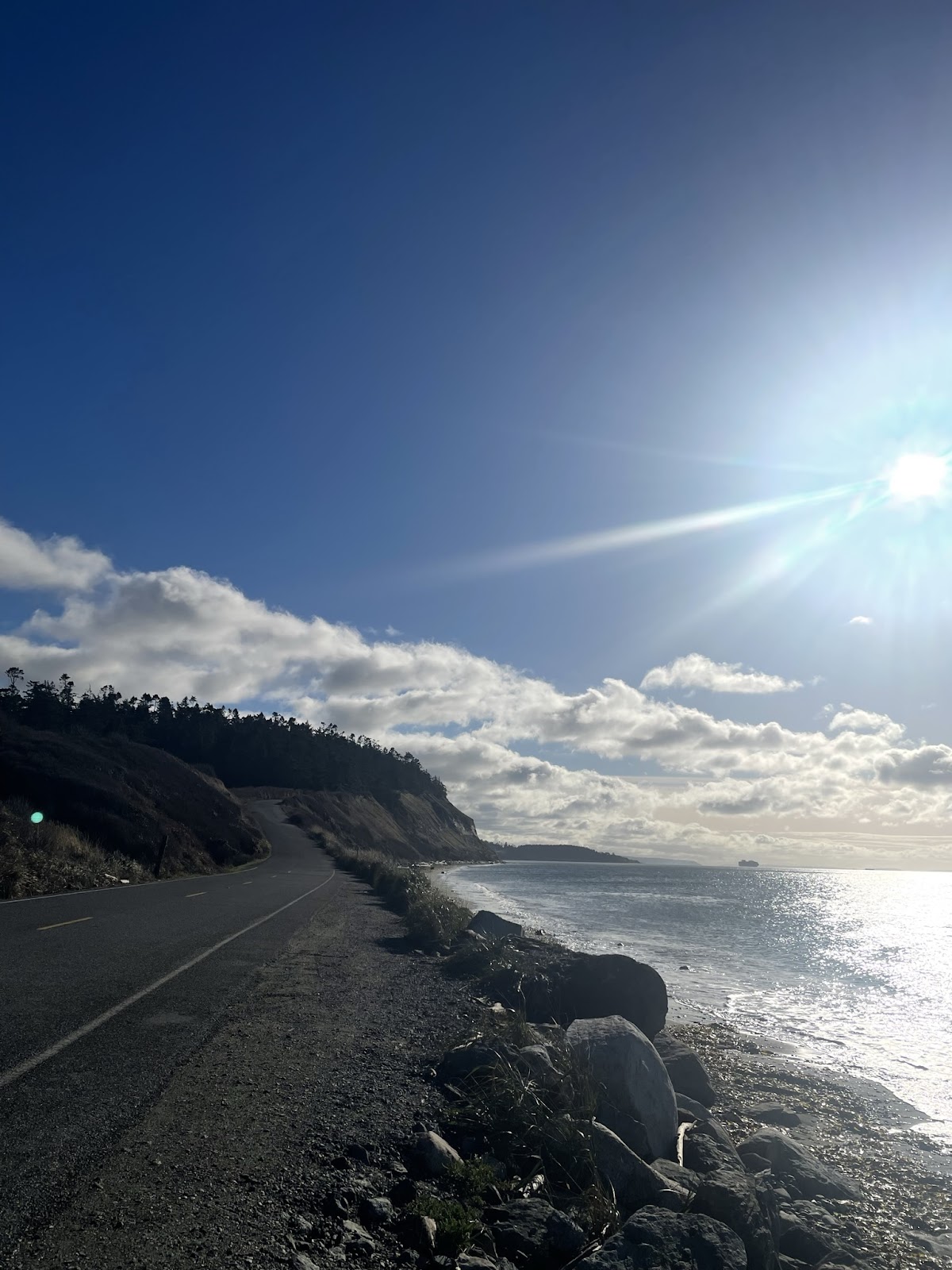
Ebey’s Landing is a national historic preserve on the coast of Whidbey Island, a short ferry ride from Seattle. You drive onto, then off of the ferry, head 35 miles north, past waterfalls, quaint towns and drive-thru coffee shops shaped like grain mills. You whiz past the standalone farmhouse in the middle of a field before slowing down, pulling a hairpin turn and parking just next to the rocks and driftwood, as the sun reflects off the frigid water. Here, the air is crisper and clearer. It lets me think.
I’ve brought all the important people here, to hike up a bluff and then back along the beach. Halfway up the ridge lies a deformed oak tree, bent into a U-shape after being struck by lightning. It was here where my high school boyfriend climbed up the stump like a monkey, before perching in the crook of the branches to grin at me sheepishly.
Further on, there’s the perch where I took pictures with my closest friends in high school, still masked due to the pandemic, hugging awkwardly as if we had forgotten what it meant to touch someone.
And then there’s the walk back on the rocky beach, best when barefoot, even when the seawater is warmer than the air — it’s there, as I squinted towards that hairpin hill one chilly day in November of 2023, where I realized I was no longer the person I once was. Halfway through Yale, I had left the specter of my high school self up on the ridge. I’ll probably visit her this spring break, alongside new friends, and carrying new memories.
There’s a song my Spotify algorithm won’t stop recommending to me: “isn’t it strange / how people can change / from strangers to friends / friends into lovers / and strangers again?” It’s taken me four years to give myself the grace to let people go back to being strangers, living lives that don’t intersect with mine.
They are the many people I pass on the walkway between HQ to WLH, with their chai lattes from the Elm or their wired earbuds and their “like, totallys” chirped to their new friends. They are the first-year suitemates whose names, once staples of my group chats, I only now see emblazoned on the signboards of the Yale Dramat, the directors and producers of long-awaited shows. Our late-night conversations over herbal tea and unfinished p-sets have morphed into casual grins of greeting as we pass one another on Prospect Street. They are the warm specters of a Yale life lived well, a Yale I am proud to have known, and soon, will be ready to leave.
There are the strangers who were once close friends, a few seasons ago, when the problems and priorities were wholly different, when I didn’t know where I was going or what I was doing and they didn’t, either. Today, they take different trails, a few hundred meters parallel to my path along the ridge. As sun shines on my face, snow falls on their shoulders. I wish them the best.
I am working to make my 8-year-old self proud of her futures and my 80-year-old self proud of my past. Sometimes, this means leaving the lovers behind: tearing out the inscriptions of books given for birthdays; throwing the photos in someone else’s trash bin. Other times, it means glancing off at that ship passing in the night, catching the eye of someone who used to be somebody that I drunkenly hug in the line to get into the Barcelona formal. Their apologies have faded, but their actions, good and bad, have not. They may now be strangers, but they are still characters in my book, regardless of whether I am a character in theirs.
I’ve brought all the important people to Ebey’s Landing: me at 16, 18, 20 and soon, 22. Isn’t it strange, how there can be so many people — so different, and yet, all the same.







